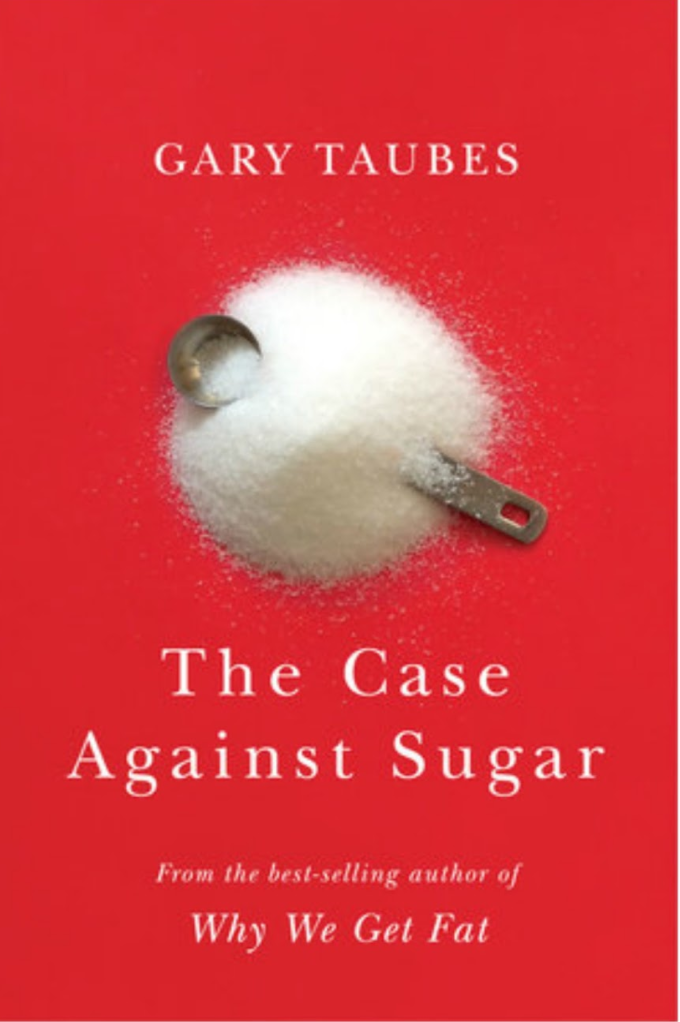In his new book “The Case Against Sugar,” journalist Gary Taubes makes, as you might easily guess, a spirited case against sugar. His argument is based on the straightforward idea that sugar contributes to obesity and disease well beyond its calorie content, because it affects human metabolism in a way that encourages fat storage.

In his new book, the science journalist Gary Taubes takes a hard-nosed look at sugar — and further advances the idea that not all calories are created equal. But there are competing theories of obesity. Who’s right?
Sugar is a carbohydrate, and the body converts carbs to glucose which is then absorbed into the bloodstream. This, in turn, triggers the pancreas to release insulin, the hormone that enables the body to use energy or store it as fat. If a person doesn’t eat many carbohydrates, the pancreas doesn’t release as much insulin, and less fat is stored, forcing the body’s metabolism to increase and burn off that energy. In practical terms, the theory goes, such a person will have an easier time losing weight — or avoiding gaining it. This hypothesis is called, appropriately, the carbohydrate/insulin, or C/I, model, and it is the basis for any number of popular low-carb diets, including Atkins, the Paleo diet, and others.
It is also a “minority position” among food scientists, Taubes concedes, and many mainstream nutrition authorities reject it.
The debate is often framed as being over the nature of calories themselves, with scientists holding that calories are units of energy — each one no different than the other — and that obesity and related health problems are a result of a simple energy imbalance: More calories are coming into the body than are, for whatever reason, being burned. Taubes dismisses this notion as “inane,” but the disagreement isn’t really about calories at all. It’s about competing theories of obesity.
Is it caused, as Taubes contends, by an excess of insulin, driving energy into fat storage? Or is it caused by an excess of calories, which the body is forced to process and store as fat? No one really disputes that to avoid gaining weight a person must burn or otherwise expend all the calories ingested each day. The question is whether some ideal combination of calories from specific sources — fats, carbohydrates, and proteins — can prompt the body to burn more without your ever having to set foot on a treadmill.
The carbohydrate/insulin model posits that there is — and the great thing about that model is that it’s testable. Do low-carbohydrate diets reduce insulin? We can measure that. Do low levels of insulin decrease fat accumulation, compared to higher levels? We can measure that too, at least in theory. In his book, Taubes details historical and epidemiological evidence for carbohydrates’ unique role in obesity, but little lab testing has been done in humans.
Taubes wanted to change that. Back in 2012, he co-founded a nonprofit organization called the Nutrition Science Initiative dedicated to fighting obesity and its related diseases by improving the quality of nutrition research. This included testing the C/I model, and NuSI assembled a team of very well-respected nutrition researchers to do it.
The team certainly wasn’t the first to tackle the problem, but few previous studies were as rigorous and specific as the ones NuSI set out to do. For a study to be comparable, it would require subjects to be confined at the research facility, to ensure that they didn’t succumb to the temptation of outside food; it would have to vary fat and carbohydrate content, but keep protein the same, because protein is already widely understood to increase the body’s metabolism; and it would have to measure insulin levels, fat gain or loss, and overall energy expenditure.
It was a tall and expensive order, and Kevin Hall, a researcher with the National Institutes of Health and a skeptic of the carbohydrate/insulin model, was recruited to spearhead a multi-site study. That was a deliberate choice, according to Hall, because it would lend credibility to the results, which found that subjects obtaining just 5 percent of their calories from carbohydrates saw their insulin levels drop and their energy expenditure rise by an average of 57 calories per day. The expenditure was highest when subjects first went on the diet — which lasted for four weeks — and then decreased over time. It was not, however, accompanied by a fat loss greater than the one the subjects experienced on the control diet.
For all of this, the study didn’t go completely as planned, and not everyone agrees on what the results actually mean. The first phase of the trial kept subjects on a standard American diet, and the goal was to have them neither gain nor lose weight. But the researchers miscalculated the calories required, and subjects lost weight, which might have changed the way they responded to the low-carb diet that followed. “The fact that they couldn’t keep the people in energy balance from the get-go,” says Taubes, “meant the experimental model didn’t work.”
Whether the weight loss made a difference to results — and in what direction — is still debated, but even if the trial were methodologically impeccable, there’s a limited amount that can be learned from one small study. Hall went on to write a paper putting the trial in the context of another he had conducted (with similar results) and related evidence. “There has never been an inpatient controlled feeding study testing the effects of isocaloric diets with equal protein,” Hall wrote, “that has reported significantly increased energy expenditure or greater loss of body fat with lower carbohydrate diets.”
Some studies, in fact, found small decreases in expenditure. Differences in body fat were insignificant, leading Hall to conclude that “important aspects of carbohydrate-insulin model have been experimentally falsified.”
Those are strong words in scientific circles, but Hall’s conclusion was unequivocal: When people are fed carefully controlled diets that vary in fat and carbohydrates, experimenters just don’t see the results predicted by the C/I model. Taubes explains this by pointing out that a very small effect — too small to be experimentally detected, but consistent over decades — is all that’s necessary to wreak health havoc. “If you store 20 calories a day, that’s two pounds in a year,” he says. Eventually, “you’ll go from being lean to being obese.”
He’s right of course, but it’s hard to see how a 20-calorie daily difference matters when calorie consumption in the United States has increased by hundreds of calories per day in recent years. According to the USDA’s proxy for calories consumed, Americans have gone from eating about 2,000 calories a day in 1980, to 2,500 in 2010. In that context, the C/I effect would have to be both significant enough to be responsible for the upsurge in obesity and disease, yet so small that state-of-the-art equipment cannot detect it.
On its face, that seems implausible, but Taubes thinks the stakes are too high to rule out even long-shot explanations for the rapid rise in obesity, diabetes, and related disorders — all of them amounting to a public health crisis. “Let’s say there’s a 10 percent chance the C/I model is right,” he says. “We’re spending a billion dollars a day on this. These are awful disorders.”
It’s a fair point, but not everyone agrees that proving the C/I model right — or wrong — is worth it. “Nitpicking whether you can get slightly better benefits — and, even if you take the best case scenario we’re only talking about slightly better,” says Yoni Freedhoff, a professor of family medicine at the University of Ottawa who studies obesity, “does a disservice to patients by implying that there’s a right way and a wrong way to lose weight.” Even if low-carb diets delivered a small boost in energy burning, Freedhoff suggests, it’s demoralizing if the patient can’t enjoy food on that diet, and irrelevant if she can’t stick to it.
The single biggest determinant of diet success, Freedhoff adds, is whether the patient can turn that diet into a lifestyle change — and that may well be where the C/I model proves most useful, regardless of its overall effect on the body’s calorie management systems. Hall, for example, tells the story of a cardiologist he met with to discuss the results of his trial. “At the end of the day,” the cardiologist told him, “I need a story to tell my patients.” If Americans have been led to believe that the low-fat fad has been debunked, and that carbohydrates are now the enemy, that’s a story, the cardiologist told Hall. “That motivates people.”
In that light, if the C/I proponents find success with that approach and manage to get people to stick to their diets, that’s a positive outcome, regardless of the underlying science.
Still, the question remains: If carbohydrates really were at the root of our problem, and cutting them out the crux of the solution, wouldn’t the millions of people who have subscribed to the Atkins and South Beach and Paleo diets have persuaded the rest of us by now? Not necessarily, says Taubes, who suggests that the ad hoc societal test of the low-carb solution lacks certainty. “If you understand beyond a shadow of a doubt that your disease is caused by sugar and flour and refined carbohydrates,” he says, “you are more likely to adhere to a diet that cuts them out.”
In the end, Taubes concedes that there is no certainty here. He’s also forthcoming in admitting that — like every other journalist or scientist or nutrition expert — he has his biases. Having a large financial and journalistic stake in the matter is one of them.
“Life is better if I’m right,” Taubes says. “I want to put my kids through college, and the more books I sell, the better. If I’m wrong, I gotta find a different career, maybe selling shoes.”
CORRECTION: An earlier version of this article mischaracterized the results of a study conducted by the Nutrition Science Initiative, which examined the effects of carbohydrate-restricted diets compared to control diets. It is not true that study subjects obtaining just 5 percent of their calories from carbohydrates experienced no fat loss. Rather, their fat loss was no greater than those subjects eating a control diet. The story has been updated.
Tamar Haspel is a journalist who has been writing about food and science for nearly two decades. She writes the James Beard Award-winning Washington Post column Unearthed, which covers food supply issues, and contributes to National Geographic, Fortune, and Cooking Light.











Comments are automatically closed one year after article publication. Archived comments are below.
Best summary ever on the subject.
I have been experimenting with low carb diets for about 5 years now. I find that on a high fat moderate proteine diet (and obviously low carbs ie less than 40g per day) one simply becomes less hungry, not having to deal with the high insulin-induced glucose crashes and hunger rages. In addition, from what I have read, a low carb diet greatly reduces inflammatory processes, which is a great plus.
I can only attest my experience on the two times I have done the low carb diet..Each time easily achieved goal of losing 9kg. So easy and certain that I find it that I now use as a bit of a yoyo.
Something neglected by the study is that it needed to be done in the wild, uncontrolled environment where hunger plays a major role in weight loss. A major factor in low carb diets is that you can eat as much as you like and what then happens is that your appetite disappears, I believe you end actually end up eating less, with no desire got snackng.
Aloha, outside of controlled in-patint studies, people choose what they eat. Things with sugar added taste better (and are often cheaper to make) then things with no sugar added. Humans have a taste affinity doe sugar and for fat. Given disproportionate access to either they will gain weight. Manufacturers hit upon this aages ago, and they are always aware of costs. Add a little sugar to french fries and a pound of the combination costs the manufacturers less than a pound of fries without sugar. And, people LIKE sugared fries (and corn, and peanuts and bread and …). Hence, manufacturers can lower the price of a product, and increase peoples “liking of if” by adding sugar.
Kool-Aid is the supreme success in this endeavor – all sugar! Sold as if it were juice!
Sugar does ot add anything but cals., so, people have to each proportionally more of other things to get the correct totals 0f nutrients. And those other things include cals, too. Total cals chosen to be eaten increases. Fat is stored.
Obesity, in this view,is based on (1) Humans like the tase of sugar and will eat more of foods that are sweet (2) artificially sweetened foods have proportionally less nutrients per cal than foods that are not artificially sweetened. (3) People then need to eat more total cals from the other sources to get the minimum of the total other
nutrients needed. Those added cals are converted to fat. (assuming energy burned is equal.
Discussion omits the major problem with sugar: Fructose, which comprises half the content of sugar. As to glucose being just glucose, the issue is not glucose alone, but the metabolic reaction to high insulin and its long term effects. These are very different things. Regarding so-called “Nutritionists”, they were wrong on saturated fat, eggs, grains, cholesterol and a host of other things and cannot be relied upon for anything but parroting what they learned. Science is factual, but all people defend what they believe.
This is just the same, Jessica Bishop also mentioned in her article. Very well researched, thanks for that. There are also a lot of other aspects which affects your health directly. She wrote some great blog posts on her site, it is really worth it to check her out: jessyreviews-dot-com.
Also, I believe the author is patently incorrect in his assertions. Here is a study done by NIH (I believe Duke U was involved) that states clearly the low-carb diets are not only more effective at losing weight, they are easier to maintain, and all the while are more effective at decreasing triglyceride levels and increasing – yes, increase- LDL levels (the “good” cholesterol).
I am certainly aware that one study may not prove anything. But since I started this in 1998, I have followed every news article or study I have heard of and have not seen one that contradicts this. If anyone is aware of a contradictory study from a non-food producing company within the last ten years, I would like to see a link.
https://www.ncbi.nlm.nih.gov/pubmed/15148063
Long ago, before the Atkins craze, my wife suggested a low-carb diet based on a book titled “The Carbohydrate Addicts Life-Span Program.” I sucked down bacon, eggs, hamburger patties – lots and lots of calories, and vegetables. Dipping vegetables in ranch dressing or mayo became my daily go-to snack and I lost 30 lbs in 6 weeks, and another 20 over the next 6 months – never hungry. I got complacent about it and some of the wait came back. Nevertheless, I pay attention to carb intake and my weight has never gotten back to previous levels. Now, I agree with Fresno Dan above about satiety. I start eating carbs and simply can’t stop. Eating fats, protein and green veggies makes me feel great with lots more energy, and keeps my weight controllable.
In my opinion, the low-fat push by the govt, health industry, and food manufacturers is criminal. If a low-carb focus were the predominant philosophy, there would be many more products in stores and restaurants that would make a low-carb diet easier to do and obesity would be minimal.
Like others, I only have personal experience to share. For the past twelve years I have paid close attention to my diet and fitness. Whatever the the science may say about calories in/calories out, there is a remarkable difference in energy and satisfaction between a low carb and low fat diet. Sugar makes my energy levels crash, and consuming sugar gives me immediate cravings for more sugar. High protein meals or snacks satisfy me and give me more power and stamina. The choice for this man is simple. What I like about nutritional science is that we don’t end to trust the authors of books. Each of us carries our own portable laboratories with us. If we choose, we can conduct our own experiments and look at the results in the mirror.
From 1996 to 2013 I put on 60 lbs following a low-fat, whole-wheat diet. From 2013 to 2017 I lost 77lbs on a no-carb, all I could eat meat and green vegetable diet. My weight is still going down, I am off all diabetes meds. Rice and pasta and potatoes kill.
I can only relate my own experience, and that using a low carb diet resulted in weight loss of 35 pounds (from 185 to 150). My view is that the elephant in the room never, ever discussed is satiety. On a diet with carbs, I FEEL hungry – I feel as compelled to eat something as I do to breathe. On a very low carb diet I have a completely non nonchalant attitude toward eating and skip lunch and sometimes dinner as well, as well as the portions being considerably smaller too.
I believe the issue isn’t the glucose in sugar, but the fructose fraction that presents the metabolic challenge. Pure glucose is THE fuel for the body and causes no hard. Fructose on the other hand is mostly converted to fat.
Years ago I asked my Primary Care doc what diet to use to lose weight. He told me the best diet is to eat what I like as long as it’s balanced and of the right amount. No fat-free anything because carbs are added to make it taste good-just eat less. Get exercise in moderate amounts on a steady basis.
In the same manner that Jung criticized Freud, Taubes sounds like a man “obsessed with fixed ideas.”
The end of this article is so disconcerting. The cardiologist “needs a story”-but what happens when that story is wrong? People will continue to distrust science.
And Gary Taubes conflict of interest? Promote a falsehood to put your kids through college? Guess truth isn’t the important lesson anymore